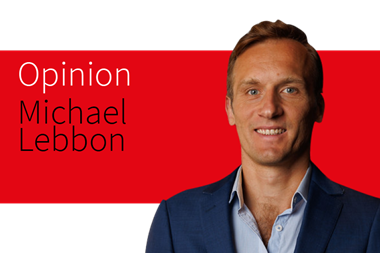Geopolitical tensions are a major barrier to tackling climate crisis and other global challenges
Geopolitical tensions are a hindrance that must be overcome if governments are to successfully come together to tackle the major risks highlighted in this year’s WEF Global Risks Report, including the climate crisis.
This is according to Saadia Zahidi, managing director, World Economic Forum. “Global coordination is going to be key to dealing with these challenges more broadly,” she said during this morning’s press conference which discussed the findings of the report.
“Governments must shift away from the emergency mindset [brought on by the COVID-crisis] and build bridges between economies. The shift must be from an emergency stance to more of a recovery and resilience stance.”
Time to cooperate
Børge Brende, president of the World Economic Forum, did not think the issues around geopolitical tensions could be resolved in the short term.
“It will be a topic for next year’s report but let’s hope the talks going on here in Geneva and elsewhere will move into a more positive track,” he said.
“Most of the challenges we face need global solutions, so if there is no cooperation in a globalised world on these major challenges we will see less effective results.”
“On the positive side, what happened at COP26 in last hours shows there is a willingness in areas where there are common interests to find common solutions.”
“A lot is at stake on the trade side and we have to hope the approach will be one of ‘prosper thy neighbour’ and a world where we have a win, win approach and not a zero sum game. This is crucial for prosperity and finding solutions for the most pressing problems.
Greenwashing will be called out
Brende expressed optimism over the progress to date on pledges to transition to a zero carbon economy. But he said that governments and businesses making these commitments would be held to account.
Increased focus - companies have said 2030. If you make a commitment - the media will increasingly will hold countries and companies accountable for their pledges.
But Peter Giger, group chief risk officer, Zurich Insurance Group, said stakeholders were typically better at dealing with a fast-evolving crisis like a pandemic than a “boiling frog scenario” like climate, and this would prove a challenge.
He does not anticipate that governments will take the lead in driving the change that is necessary, but takes comfort in the action already being seen in the private sector.
“There is optimism from the fact that more businesses are starting to think about this as a strategic opportunity and position themselves for a carbon neutral economy,” he added.
“On the business side we see more developments in terms of companies trying to adapt. Private initiatives are starting to gain more ground because people see more opportunity.”
Climate no longer a ‘blind spot’
The pandemic has been somewhat of a distraction from the climate crisis, according to Carolina Klint, risk management leader, Continental Europe at Marsh. But companies can no longer climate it is a “blind spot” in the face of growing climate extremes and extreme weather, she thought.
“The changes necessary are probably going to be more connected to stakeholder capitalism and shareholder activism and the focus on ESG targets and metrics, which is reshaping the financial and economic landscape,” she said.
“The commitments made by governments are being closely monitored for signs that might indicate green washing. Companies and governments that don’t stay true to their commitments are going to suffer.”




















No comments yet